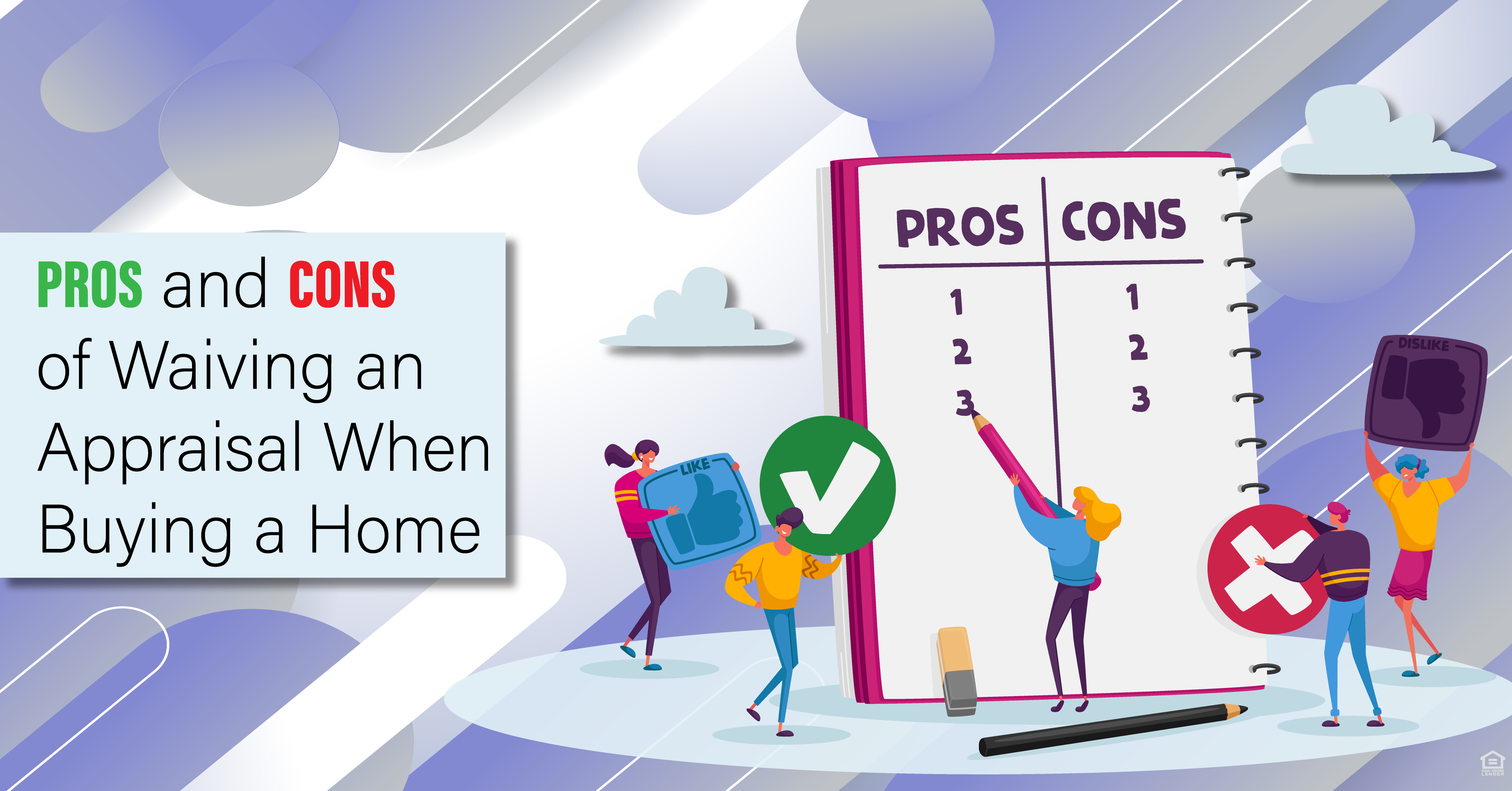Pros and Cons of Waiving an Appraisal When Buying a Home

Lenders are touting to realtors and borrowers that they do not require an appraisal in order to approve and close a residential home mortgage, but no lender has the secret sauce!
Under certain circumstances Fannie Mae and Freddie Mac do not require a traditional appraisal when approving a conforming loan through their Automated Underwriting Systems (AUS). This process is referred to as a Property Inspection Waiver (PIW).
What is a Property Inspection Waiver (PIW)?
A Property Inspection Waiver (PIW) is an underwriting decision that allows a borrower to be approved for a mortgage without an appraisal or physical inspection of the subject property.
Obtaining a PIW can be a guessing game. The eligibility is based on a variety of factors, including the agency's database of real estate values from previous home sales in the surrounding neighborhood. In addition to this, the income, assets, credit, and loan-to-value ratio of the specific borrower and transaction are all taken into account.
Eligibility Requirements
As a general rule of thumb, the greater the down payment or equity in a home, the greater possibility of securing a Property Inspection Waiver.
However, it’s important that nothing changes within your financial profile after you apply for a loan. For example, if you miss a credit card payment, apply for a new car loan, or face income inaccuracies, you could lose your Property Inspection Waiver. As a result of the loss of the PIW, a traditional appraisal will now be required.
Benefits of Property Inspection Waivers
While Property Inspection Waivers are only offered on conventional mortgages, there are a number of benefits if you can secure one.
- Speed up the loan process
- Reduce closing costs
- Allow a borrower to waive their appraisal contingency
- Help buyers win bidding wars
Property inspection waivers are attractive in today’s competitive market because you’ll be able to close on a loan much faster.
Buyer Beware: Property Inspection Waivers Carry Certain Risks
While waiving a property inspection seems like a tremendous win, borrowers need to recognize the risks associated with a PIW.
- Until the day the loan closes, if any characteristics of the borrower’s financial profile changes (credit, income, assets), a lender or borrower can lose the PIW.
- Once the PIW is lost, you can never get it back. Losing a PIW can delay the closing because you’ll now need an appraisal, and run the risk of the property under-appraising.
- Opting for a PIW will not give you the peace of mind of having a professional appraiser assess the market value of the property.
Closing Thoughts
While some lenders claim to not require an appraisal, it’s important to remain informed on the limits of this statement. As a borrower, only you can weigh the pros and cons of utilizing a PIW. Reaching out to a trusted mortgage professional can help you to decide the best move for your future.